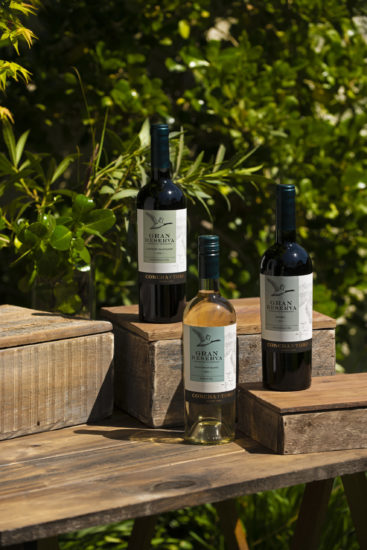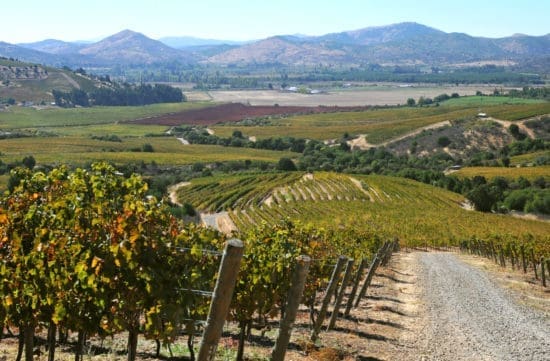Wines that take care of the planet


Choosing wines made in congruence with care for the environment is possible. Sustainable viticulture considers the long-term impact that making wines generates on the planet, taking actions in this regard.
In the world of wine, the raw material is the grape and the first thing you need to make good wines is “healthy grapes.” But, unfortunately, in the second half of the 20th century the use of chemicals to control pests and diseases, as well as the use of fertilizers, increased significantly in viticulture, causing damage to the environment that has become an increasingly serious concern. Not only among those who make the wine, but also among informed and environmentally conscious consumers: today they demand more sustainable practices.
This is how, fortunately, today there are options available for those seeking to produce grapes with fewer chemicals and minimizing the negative impact on the environment. Sustainable viticulture is one of them.

Sustainable viticulture is an agricultural way of producing grapes of the highest quality, but minimizing its impact on the environment. And it also considers aspects that go beyond what happens in the vineyard and the winery, covering the entire chain supply. That is, aspects such as energy consumption and the community in which the vineyard is located are also taken into account.
Regarding sustainable viticulture and its practices in the vineyard, this type of agriculture does not prohibit the use of man-made chemicals, although it does restrict them. The demands are on the winegrowers, who must achieve a real understanding of the vineyards and their possible diseases, in order to predict and prevent pests instead of following a product application calendar. In this way, for example, certain predators must remain in the vineyard to control the pest population naturally, giving vital importance to the biodiversity of the vineyards. This is what happens in the way Gran Reserva wines are made, such as Gran Reserva Carmenère and Gran Reserva Sauvignon Blanc, for example.

At Gran Reserva, in fact, this sustainable vision is reflected in Uncork a Better Future, a call to action not only for the consumer, but also for the entire world. It is a long-term view that invites us to generate positive actions that improve our world, it is three fundamental aspects.
The first call to action is “Let’s Take Care of Water”, focusing on enhancing water efficiency under the Zero Water Waste principle, with a series of actions. Such as, for example, the drip irrigation of 100% of its vineyards and the scope of a water footprint that is 40% lower than the average for the wine industry.
The second call is “Protect Biodiversity”. As a way of giving back, Gran Reserva calls for protecting ecosystems. This is carried out thanks to the FSC® certification, under which they have 4,272 hectares of protected native forest. That is, for every hectare of vineyard, Gran Reserva protects almost half a hectare of native forest, generating resilient ecosystems.
Then, the third call is “Reduce your Footprint” referring to the carbon footprint. A commitment that has allowed them to move towards Zero Carbon Emissions by 2050, thanks to the fact that, for example, in 2022, 100% of their energy came from renewable sources.

We comply with the highest standards of verified social and environmental performance, transparency, and legal responsibility to balance benefit and purpose.
We adopt an Impact Business Model, creating beneficial links between business, community, and environment.
The Gran Reserva vineyards are an important part of the project to conserve native forest areas and protect local biodiversity. Our native forests have the ability to retain rainwater and control the kind of climate change that results from water shortages.
We take care of 1,432 hectares of protected forests and, on average per vineyard, a total of 105 species of fauna and 48 species of registered flora.
Our effort to preserve nature begins with responsible water consumption. 99% of the water we use comes from surface and subterranean sources.
Our vineyards are drip irrigated, which translates to a 90% efficiency on water consumption, and over the past 3 years, we’ve reduced our water footprint by 10%.
All of our winemaking processes require the use of energy. Our choice to invest in clean, renewable energy reflects our desire to co-create a sustainable planet for the future.
100% of the electricity used to make the wines in the Gran Reserva collection come from renewable sources, including solar energy.
Concha y Toro has been certified under the Wines of Chile Sustainability Code since 2012, which means that our vineyards are officially recognized as sustainable vineyards.
The wines in our Gran Reserva collection are crafted entirely from estate-owned grapes in sustainably managed vineyards.